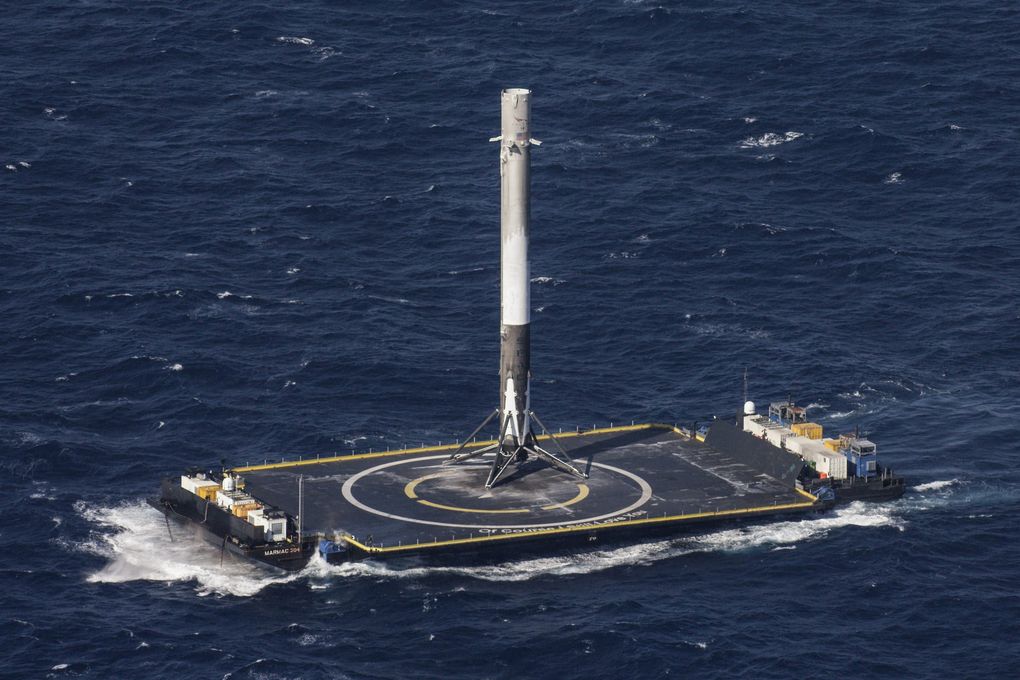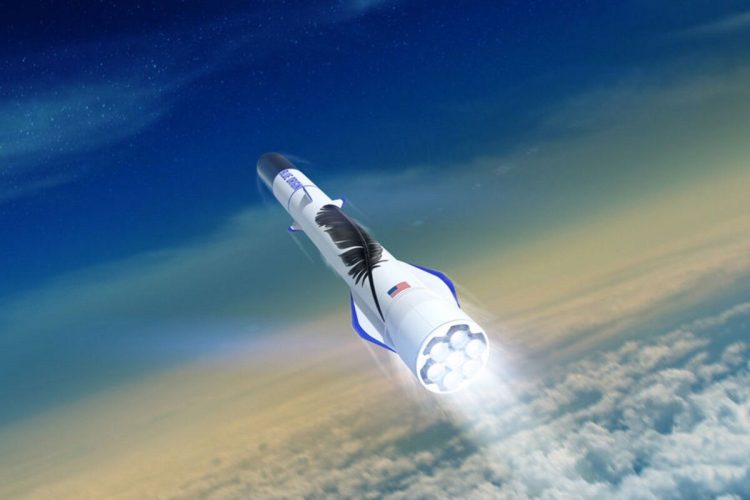The space industry has seen monumental advancements in recent decades. From the iconic Apollo missions to the modern marvels of the International Space Station, humanity has made great strides in exploring the final frontier. However, in the last decade, one particular technological leap has overshadowed most others: the development and deployment of reusable rockets.
Historically, rockets were single-use vehicles, discarded after each mission, much like a disposable plastic bottle. This design was both inefficient and prohibitively expensive. However, companies like SpaceX, Blue Origin, and Rocket Lab have revolutionized the concept of space travel by introducing reusable rockets. This innovation promises to dramatically reduce the cost of space exploration, making it more accessible and sustainable.
Yet, despite the excitement surrounding reusable rockets, the question remains: is this development truly an innovation, or is it simply a clever cost-cutting measure? To explore this, let’s take a deeper look at the technology, its implications for the future of space exploration, and the broader economic and environmental considerations.
The Basics of Rocket Reusability
To understand the significance of reusable rockets, it’s important first to comprehend the mechanics of traditional rocket design. Conventional rockets are engineered for a single use. After launch, the rocket’s first stage (the booster) expends its fuel, detaches from the rest of the vehicle, and falls back to Earth, where it is either destroyed upon impact or lost forever.
A reusable rocket, on the other hand, is designed to be recovered, refurbished, and relaunched multiple times. This is achieved through a combination of advanced engineering, software, and materials that allow the rocket to survive the extreme conditions of launch, re-entry, and landing.
SpaceX’s Falcon 9, for instance, uses powerful thrusters and autonomous landing systems to return its first stage to Earth after delivering payloads into space. This ability to recover and reuse parts of the rocket marks a dramatic departure from the “one-and-done” tradition.

The Innovation Behind Reusable Rockets
Reusable rockets represent a major shift in how we think about space exploration and travel. At its core, this technology offers a compelling combination of environmental sustainability, economic efficiency, and technical ingenuity.
- Engineering Mastery: The development of reusable rockets requires cutting-edge technology. The precision needed to land a rocket booster vertically, often on a small platform in the middle of the ocean, is a feat of engineering and computer science. SpaceX, in particular, has perfected this technique, showcasing it with stunning success.
- Cost Reduction: The most immediate and widely publicized benefit of reusable rockets is their potential to reduce the cost of space travel. In the past, the cost of manufacturing, launching, and recovering rockets was astronomical—each launch could cost hundreds of millions of dollars. Reusing rockets could reduce these expenses drastically. SpaceX has estimated that reusing just the Falcon 9’s first stage could reduce the cost of a launch by up to 30%, which could result in billions of dollars saved over time.
- Access to Space: Lower costs open the door to more frequent and diverse space missions. The reduced price of launching rockets makes space more accessible to private companies, research institutions, and even nations with smaller space programs. This could lead to increased space exploration, satellite deployment, and scientific advancements.
- Environmental Impact: Though rockets have a high environmental cost in terms of energy consumption and CO2 emissions, reusing parts of the rocket significantly cuts down on waste. The manufacturing process for each new rocket is labor-intensive and resource-heavy, so reusing parts helps reduce the ecological footprint of space missions.
Challenges in Reusable Rocket Technology
While the potential benefits of reusable rockets are undeniable, the technology is far from perfect. There are several challenges that need to be addressed before rockets can truly become fully reusable in the way airplanes are today.
- Reliability and Safety: Ensuring the safety of the rockets is paramount. Although the technology behind reusable rockets has come a long way, there is always the risk that a failure in re-entry or landing could result in the loss of the rocket and payload. SpaceX has encountered a number of failures with its early attempts, and while these incidents have become fewer over time, there is always the possibility of unforeseen issues.
- Cost of Refurbishment: While launching a reusable rocket may save money compared to traditional methods, the cost of refurbishment cannot be ignored. The rocket’s engines, landing gear, and other components must be inspected, repaired, and replaced when necessary. This process can be time-consuming and expensive, potentially offsetting some of the savings. However, the hope is that as technology advances, the cost of refurbishment will decrease over time.
- Maintenance of Technology: Rockets are exposed to extreme forces during launch and re-entry, including intense vibration, temperature fluctuations, and high levels of pressure. These forces can cause wear and tear on the rocket components, requiring regular and careful maintenance. Finding ways to minimize the wear and tear while maintaining high performance is a key challenge for engineers.
- Scalability: Another hurdle is the scalability of reusable rocket technology. As demand for satellite launches and other space activities increases, we will need to ramp up the number of reusable rockets available. This requires not only a substantial investment in rocket fleets but also a robust infrastructure for refurbishment, launch, and recovery. Scaling the technology to meet the needs of an expanding space industry will take significant time, resources, and effort.
Reusable Rockets and the Future of Space Exploration
The rise of reusable rockets is arguably one of the most transformative advancements in modern space exploration. The ability to reuse key components of a rocket has the potential to make space exploration more affordable, efficient, and sustainable. It could open up new opportunities for scientific discovery, space tourism, and even the colonization of other planets.
- Space Tourism: One area where reusable rockets are already having a significant impact is space tourism. Companies like Blue Origin and Virgin Galactic are developing spacecraft designed for suborbital flights, allowing paying customers to experience weightlessness and see the Earth from space. As reusable rocket technology continues to improve, the cost of these missions may decrease, making space tourism more accessible to a broader audience.
- Interplanetary Travel: The long-term vision for reusable rockets includes missions beyond Earth orbit. SpaceX’s Starship, for instance, is designed to be a fully reusable spacecraft that could eventually carry humans to Mars. This ambitious goal would make space travel far more cost-effective, potentially paving the way for human colonization of other planets. With reusable technology, the economics of interplanetary exploration could shift from “one-off” missions to ongoing, sustainable endeavors.
- Commercial Satellite Deployment: Space-based technologies, such as satellites for communications, weather monitoring, and Earth observation, have become essential to modern society. Reusable rockets can dramatically reduce the cost of deploying these satellites, enabling more frequent launches and making satellite technology more widely available. This would have significant implications for businesses, governments, and organizations that rely on satellite data.
- Scientific Advancements: More frequent and affordable space missions could lead to a new era of scientific discovery. The ability to send instruments into space for research purposes could provide critical data about the cosmos, climate change, and other pressing global issues. Reusable rockets could help enable this type of research by making space missions more routine and cost-effective.
The Economic and Environmental Perspective
Beyond the technical aspects, the introduction of reusable rockets also has significant economic and environmental implications. The space industry is notoriously expensive, with governments traditionally shouldering the majority of the costs. By making space more accessible to private companies, the commercial space industry is growing rapidly, with companies like SpaceX, Blue Origin, and Rocket Lab leading the charge.
The economic benefits are clear: cost reductions, more frequent missions, and the development of new industries. For example, the satellite industry could see a boom, as the reduced cost of launching satellites enables more companies to participate in space-based services. Additionally, the creation of new jobs and markets for space-related technology could stimulate growth in both the aerospace sector and other industries.
From an environmental standpoint, reusable rockets offer a way to mitigate some of the negative effects of space launches. While rockets do contribute to atmospheric pollution, reusing parts of the vehicle reduces the overall waste generated by each launch. Additionally, the advancement of greener propulsion technologies, such as reusable engines powered by liquid methane, could further reduce the ecological footprint of space exploration.
Conclusion: Innovation or Cost-Cutting?
So, are reusable rockets truly an innovation, or are they just a cost-cutting trick? In many ways, they are both. Reusable rocket technology represents a significant engineering achievement that pushes the boundaries of what’s possible in space exploration. At the same time, the cost-saving potential is undeniable, making space travel more economically viable.
Ultimately, the development of reusable rockets may not only reshape the future of space exploration but could also redefine how we think about technology and innovation. The ability to reuse parts of complex machines, much like how we reuse airplanes, represents a paradigm shift in engineering and manufacturing. It’s not just about cost-cutting—it’s about creating a sustainable and efficient future for space travel, opening up new frontiers for humanity.











































Discussion about this post